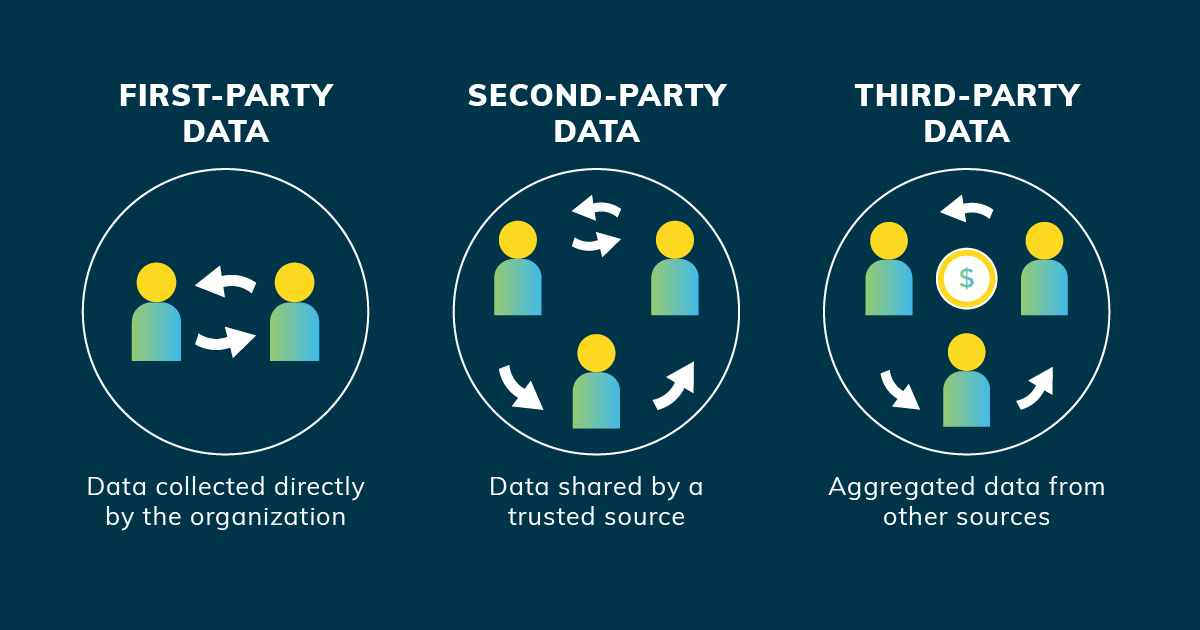18 April 2024

The digital industry is constantly evolving. Adopting innovative marketing strategies is essential for staying competitive. Businesses need to be aware of any changes happening in the digital and tech spaces so they can identify opportunities and ways of integrating data to achieve objectives. Here are the four vital pillars for ensuring performance in these changing times.
Significant changes
Digital marketing is in flux. It’s experiencing major changes, like the disappearance of third-party cookies, the introduction of Bill 25, and the rise of data privacy and protection solutions. These changes are upending traditional practices, forcing companies to rethink their marketing strategies.
The disappearance of the third-party cookie: Google has announced that third-party cookie use on Chrome will end in 2024. This move will limit advertisers' ability to track users and deliver targeted ads.
App Tracking Transparency (ATT): Apple introduced the ATT framework with iOS 14.5, giving users more control over how apps track their data.
Bill 25: Quebec introduced new legislation, Law 25, which went into effect in September 2023. This law protects personal information and requires companies to obtain users' consent before collecting, using, or sharing data.
Tracking Protection: Google has announced the launch of Tracking Protection in Chrome, which restricts third-party trackers from monitoring user activity.

The future of digital marketing: challenges and opportunities
The end of hyper-targeted advertising as we know it is imminent. While this shift no doubt presents challenges for many companies, we prefer to think of it as an opportunity to explore and evolve new marketing strategies, ones more focused on personalization and added value for consumers.
Reduced ad targeting: The disappearance of third-party cookies and other privacy safeguards, precise audience targeting is more challenging.
Increased advertising costs: Competition for audiences is intensifying, resulting in higher advertising costs.
The importance of first-party data: Data collected directly from customers becomes more important in developing personalized marketing strategies.

Trends to watch
The marketing strategies of tomorrow will be personalized, omnichannel, automated, and sustainable. Companies that understand how to capitalize on these trends will be best positioned to succeed in an ever-changing world.
Personalization: Companies are striving to deliver personalized customer experiences using first-party data and artificial intelligence.
Omnichannel marketing: Companies are increasingly adopting an omnichannel approach to offer customers a seamless experience across all channels.
Marketing automation: Automation is being used to increase efficiency and optimize marketing campaigns.
Carbon footprint: The digital industry is actively pursuing eco-friendly solutions by adopting sustainable practices to minimize its carbon footprint.
The era of adaptation and innovation
Faced with these challenges, marketers need to embrace innovation by relying on first-party data and advanced technological solutions. This means reassessing targeting and personalization strategies to maintain campaign effectiveness in a cookie-less world. Precise attribution and thorough analyses of campaign performance are imperative. Advanced attribution tools provide a comprehensive understanding of the effectiveness of different channels and touchpoints, facilitating optimized budget allocation and more targeted marketing strategies.
Collect and leverage first-party data: Develop strategies for responsibly and transparently gathering and using first-party data.
Invest in attribution solutions: Employ attribution solutions to measure the effectiveness of your marketing campaigns and optimize your investments.
Adopt an omnichannel approach: Provide a seamless customer experience across all channels, ensuring consistency and coherence.
Stay on top of the latest trends: Keep up with the latest industry trends and adjust your strategies accordingly.

The digital landscape is rapidly evolving, and companies must adapt in order to stay competitive. But rather than viewing today’s challenges as obstacles, let’s see them for what they are: opportunities to innovate and stand out against competitors.


